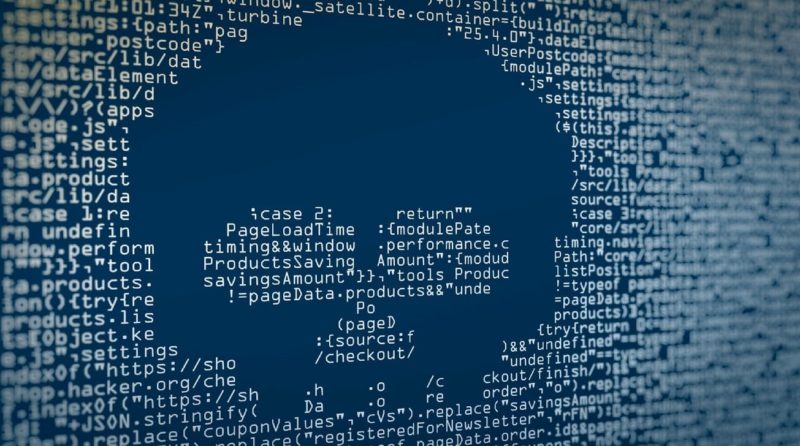There is a growing number of proponents and organizations working to move humanity from an age of free information to a secure information age. “Information wants to be free” was a hacker slogan from the 1980s, meaning anyone should be able to access any data from anybody. On the surface that may sound like that would have led to a democratic and fair world. Unfortunately, cybercriminals, businesses, and governments aggressively put this concept to use and today know far more about controlling and profiting from each person’s personal data than the average citizen does. And that is the problem. A small but increasing number of people realize that data privacy is extremely important but are unsure how to protect it. A secure information age is one where everyone owns their own data. To get there one needs to accept that protecting personal data and learning how to use this data for one’s own benefit may be complex and difficult in the beginning, but it can be learned and is worth the effort.
As discussed in the U Cast News article, “Cybercrime will soon be the 4th largest economy in the world,” the threats to each person’s data and safety are immense and growing daily. Putting off doing something about improving personal data protection is just plain careless. In the U Cast article, “Owning Your Own Data. Building a Secure Internet,” the perspectives of Brittany Kaiser and George Gilder are compared. While both stress the importance of education on the subject, Kaiser emphasizes that government needs to take a strong regulatory role. Gilder emphasizes that technical innovation and personal choice empower the individual to control the most valuable asset in the world, one’s own data. Owning your own data is both a mindset and a lifestyle. Each person must adapt it to their needs. Without a high level of privacy protection, there is no possibility of controlling and profiting from your data. Today data from each mobile phone call, credit card purchase, internet browsing inquiry, smart device action, and so forth are shared or sold to thousands of organizations unless protocols are in place that gives the person control of his or her data. Disintermediation is the removal of intermediaries or middlemen in a transaction. Ideally, data disintermediation or “owning your own data” gives one’s personal data only to trusted people and organizations and binds them to share it only with select entities that deliver the services, products, or information that one requests.
So how is this done?
- Use tools and tactics to protect and control personal data.
- Get in the habit of learning from data privacy experts and personal data experts from articles and YouTube videos.
- Expand knowledge, reexamine goals, and adjust tactics over time.
Tools and tactics for households and small businesses
- Use comprehensive computer privacy protection. Highly rated anti-virus programs offer free versions of their software, but these versions provide only a limited protection level. It is best to spend the money and buy a subscription to software that protects computers on various fronts. An online search for “best antivirus software 2021” displays links to articles and ratings for solid security software by computer professionals. For example, Kaspersky is a highly rated choice. Kaspersky stops viruses and malware and stops websites from turning on the computer webcam to spy on the user. Webcam spying is becoming more common even by “regular” companies. Kaspersky allows parents to set online protection for their children, block specific websites, display warnings if a website is not secure, and scans all files in the computer to determine if they have malware. Kaspersky has a password manager, a data backup function, and a VPN as well as more security settings options for the user to choose to increase or decrease privacy protection as desired.
- Use highly rated online backup services like IDrive, Backblaze, or Carbonite. If a person receives a ransomware attack these services protect the backed-up data. For example, after an actual ransomware threat, the user can have a local computer tech or Geek Squad clean the computer and reload the user’s data from IDrive using a date before the ransomware attack.
Online backup also protects files or photos from permanent loss by accidental deletion, hard drive crashes, etc. One underreported reason why some small and medium businesses fail is their computer hard drives failed, there was no online backup, and so they no longer had the data necessary to run their businesses.
- Use a privacy browser such as DuckDuckGo, Brave, or Mozilla Firefox. These kinds of browsers prevent tracking cookies from loading onto computers or mobile phones by websites, allow private browsing of the Internet, clear the browsing history, and offer many other options.
- When using public Wi-Fi like at Starbucks, here are some important safety tips. Using public Wi-Fi allows a hacker to get in front of and intercept the connection. The user’s data goes to the hacker instead of the hotspot. To avoid being hacked take these 5 steps: a) Use security software on all devices; b) Use a VPN; c) Visit only SSL websites (https instead of http); d) Turn Off Sharing; e) turn off Wi-Fi when not using it.
- Many cybercriminals acquire the names, mobile phone numbers, home addresses, email addresses, and other personal information that people post on Facebook, Twitter, and other social media. This means posting dates when one will be gone on vacation is an invitation to thieves. Thieves schedule break-ins when they know homes and apartments will be unoccupied and are using social media to locate targets. Putting personal contact information in social media profiles and posts makes people subject to phishing attacks via email, text, or telephone calls where criminals pretend to be someone familiar or official (corporations, the IRS, government agencies, non-profits, etc.) and manipulate the person to give their social security number, provide credit card numbers, or other data that can be used to access the finances of that person. It is best for a consumer to not trust any messages asking for financial or private information and call the official phone number on the company’s official website or from account statements in one’s files to find out if the stated organization called and why.
- Do not give in to anyone demanding personal information to settle a debt. There are about 4 million court cases per year for debt claims. Millions of people have heavy debt loads and the stress makes them more susceptible to exploitation by scam artists. In 2019 consumer debt reached $14 trillion, the highest level ever. Phony debt collectors pose as the IRS or a collections agency. These con artists use phone calls, emails, letters, or even visit debtors at their home and threaten to disclose the victim’s financial situation to their friends or their employer or threaten the victims with prison time. Victims who succumb to the pressure give credit card numbers, bank account information, or other personal data to the con artist hoping to settle the debt quickly.
- Elon Musk recently said mobile phone users should delete Messenger because it is insecure. Use apps like Signal instead of Messenger or WeChat for text messages. “10 Reasons Why You Should Be Using Signal” by Brittni Devlin is a good article on this cutting-edge privacy mobile app.
- Use Identity Guard or LifeLock to warn of real and possible cyber threats, as well as provide services to restore identity. Both services have additional benefits such as protecting personal credit and financial accounts depending on the subscription level.
- One’s good credit is an asset. Credit is another form of personal data. Learning how to protect credit and improve credit scores are both important to reduce credit card and loan interest rates and provide financial flexibility. When a person has bad credit, life becomes much harder. Two articles worth reading are “21 Ways to Improve Credit in 2021” on experian.com and “9 tips for protecting your credit cards, credit score” on creditcards.com.
- Join only loyalty or rewards programs (if any) that make it easy to deny the company the ability to sell or share personal data with other organizations that will then sell personal data to thousands of other companies.
- When buying online, it is best to use websites that use secure SSL (https) in their URLs instead of just http protocol. Https sites encrypt all message content and have a more secure layer of protection against cybercriminals. Http websites do not have this security feature and a cybercriminal can easily steal a consumer’s credit card data while the customer is shopping.
- Another common scheme is rental fraud. “Rental Scams: How to Spot Them & What to Do” on avial.com is a comprehensive article on this problem. Many rental scams that look legitimate are on classified ad websites like Craigslist. In 2018 over 5.2 million people were victims and about one-third lost $1000 or more. Some scams dupe victims into giving financial and personal information instead of asking for money in advance since scammers find the information more profitable to sell to other criminals.
- Which one is better, a VPN or ZTNA? Virtual Private Networks and Zero-Trust Network Access are good security measures for businesses that have employees who work offsite. However, ZTNA is more comprehensive in providing online security of conversations and data sharing. “What Most Enterprises Get Wrong About ZTNA” by vpnreviews.com provides a clear introduction to what ZTNA can do.
- Theft of letters and parcels from home mailboxes and even the blue public mail drop boxes continue to rise. Important letters are safer when mailed directly at the post office. “The Risk of Identity Theft from Your Home Mailbox” by thebalance.com discusses ways to prevent identity theft and letter theft from personal mailboxes.
- Credit Card and ATM theft can be avoided in most cases by taking simple steps. Yet still, many card users neglect to learn and apply these principles. “7 Hot Spots for Credit Card Theft and How to Cut Your Risk” by creditcards.com provides practical advice that one can use immediately, including how to identify credit card skimming devices.
- Shredders are an important tool to protect personal information. Criminals sort through the trash from apartments, homes, and businesses to steal identities and break into financial accounts. Micro-cut shredders are more expensive yet far more effective than regular shredders.
Following the above recommendations will immensely improve the level of safety of personal data and sharpen one’s mindset to control and profit from one’s data.
The world is changing fast and those who are aware of how to protect and control their data will be better off in the long run than those who do not. There are hundreds of YouTube videos and thousands of articles on digital privacy. However, there are not many good videos or articles about owning your data.
Here are some suggestions by experts on this subject:
- ownyourdatafoundation.com is Brittany Kaiser’s website. Her focus is government regulation, digital ethics, code training, computer training, and blockchain training.
- “Life After Google” is the book by tech visionary and bestselling author George Gilder. It reveals the many ways personal data is gathered and sold by big data companies and the trends empowering the individual to own their own data. “George Gilder: Forget Cloud Computing, Blockchain is the Future” on the Hoover Institution channel on YouTube discusses some of these powerful trends.
- “Who owns your data? Jaron Lanier has the answer” on the YouTube channel “Yang Speaks” channel and provides important insights by this brilliant computer scientist Jaron Lanier.
- eff.org is The Electronic Freedom Foundation’s website which promotes user privacy and civil liberties in the digital world. It publishes new articles daily and covers the many aspects of how personal data is being abused as well as efforts being used to protect the public.
Computers and the tools of the digital world are being inserted into more of the casual and work time of everyone every day. They are the intermediaries of the human experience. Friends and co-workers talk to and look at each other through Skype or Zoom on their mobile phones more than face-to-face. Apps and websites increasingly replace books and print media as sources of information and entertainment. Online banking, investing in stocks, and buying of products are replacing the interactions of bank tellers, stock advisors, and salespeople. People use computers and digital tools because they are convenient, and they trust them. There is an immense but hidden cost to all this. Trust is a wonderful thing, but that trust is violated every second of every day in the current data exchange system. Each action people take online is begin monitored, converted into data, and sold to thousands of companies every second. Much of this data is stolen by cybercriminals because is it housed in centralized and poorly protected data silos. These data companies and cybercriminals are the ones that control people’s data for profit and know more and more about each person every day. People have given up the most important thing, their personal data, and that gives Big Data and cybercriminals this control. People have permitted their privacy to slip away. What would be considered invasive 40 years ago by most people is considered a tradeoff for convenience today.
On a positive note, privacy software and training on how to implement privacy tactics are on the increase. Blockchain and other processes that give people ways to control and profit from their data are in the beginning stages. The most important thing is to start and make these tools and tactics part of one’s lifestyle. This means expanding knowledge, reexamining goals, and adjusting tactics over time. Privacy and control of personal data will not happen out of convenience but out of demand for them.





